Github Scanner Malware
Malware Origin
Someone in a Discord server shared the following email.

The message encourages users to visit hxxps[://]github-scanner[.]com.
Site
When someone visits the website, they are prompted to run a command to “prove they’re human”.

When clicked, the site prompts the user to run the contents of their clipboard.
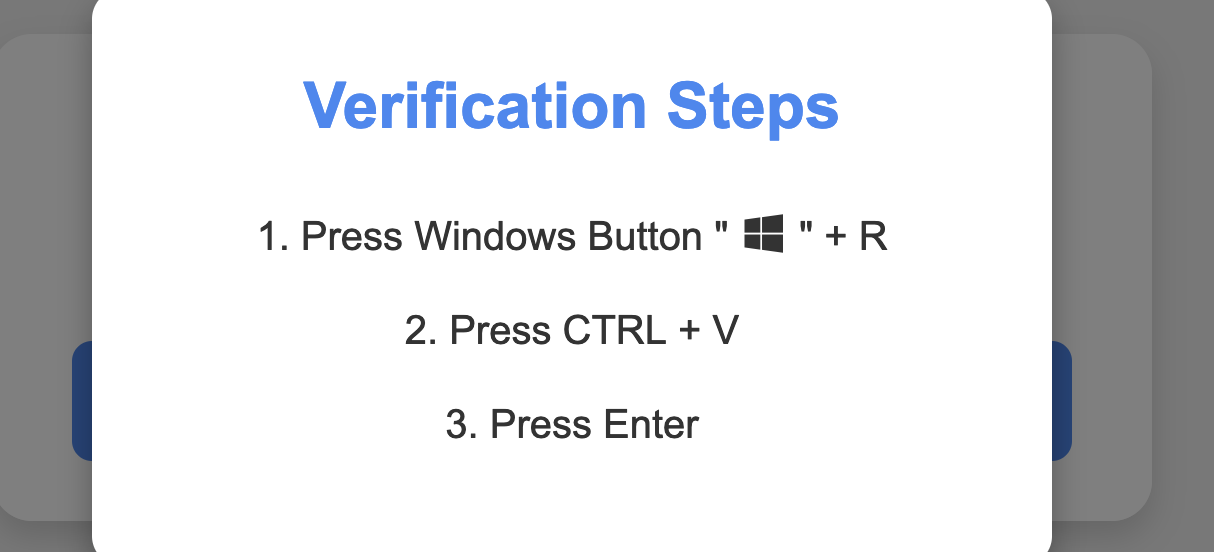
The site uses the following JavaScript to copy commands to the clipboard.

PowerShell script
When the executable runs, it downloads another executable to temp.

The first binary
Opening the executable in Ghidra and IDA Free yielded little information. Examining it further, I realized it jumps to a DLL called MSCOREE.DLL::_CorExeMain which is a .NET runtime DLL. I then opened it in DnSpyEx. The .NET program contained these large buffers which I suspected were encrypted payloads.
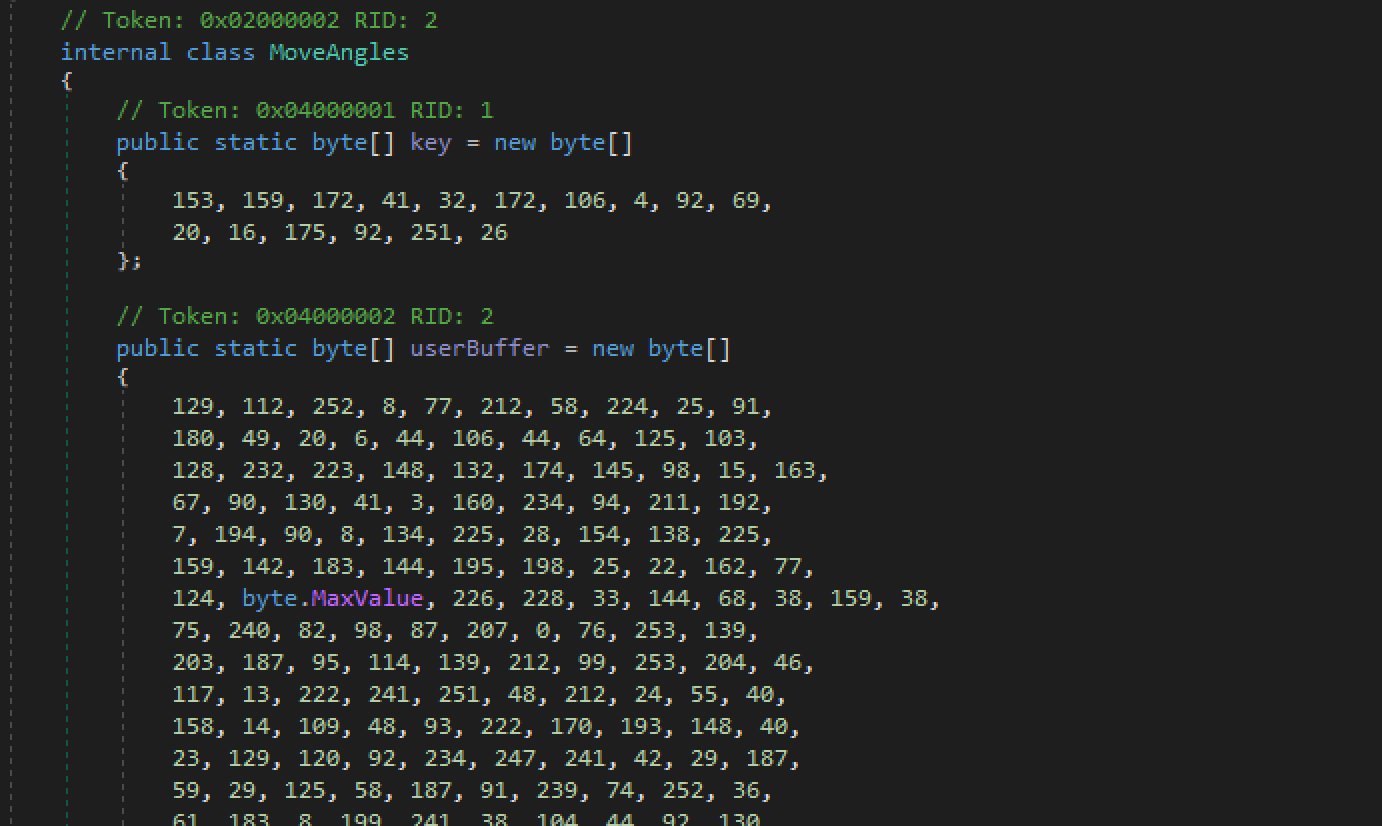
This was later confirmed when I found the decryption routines.
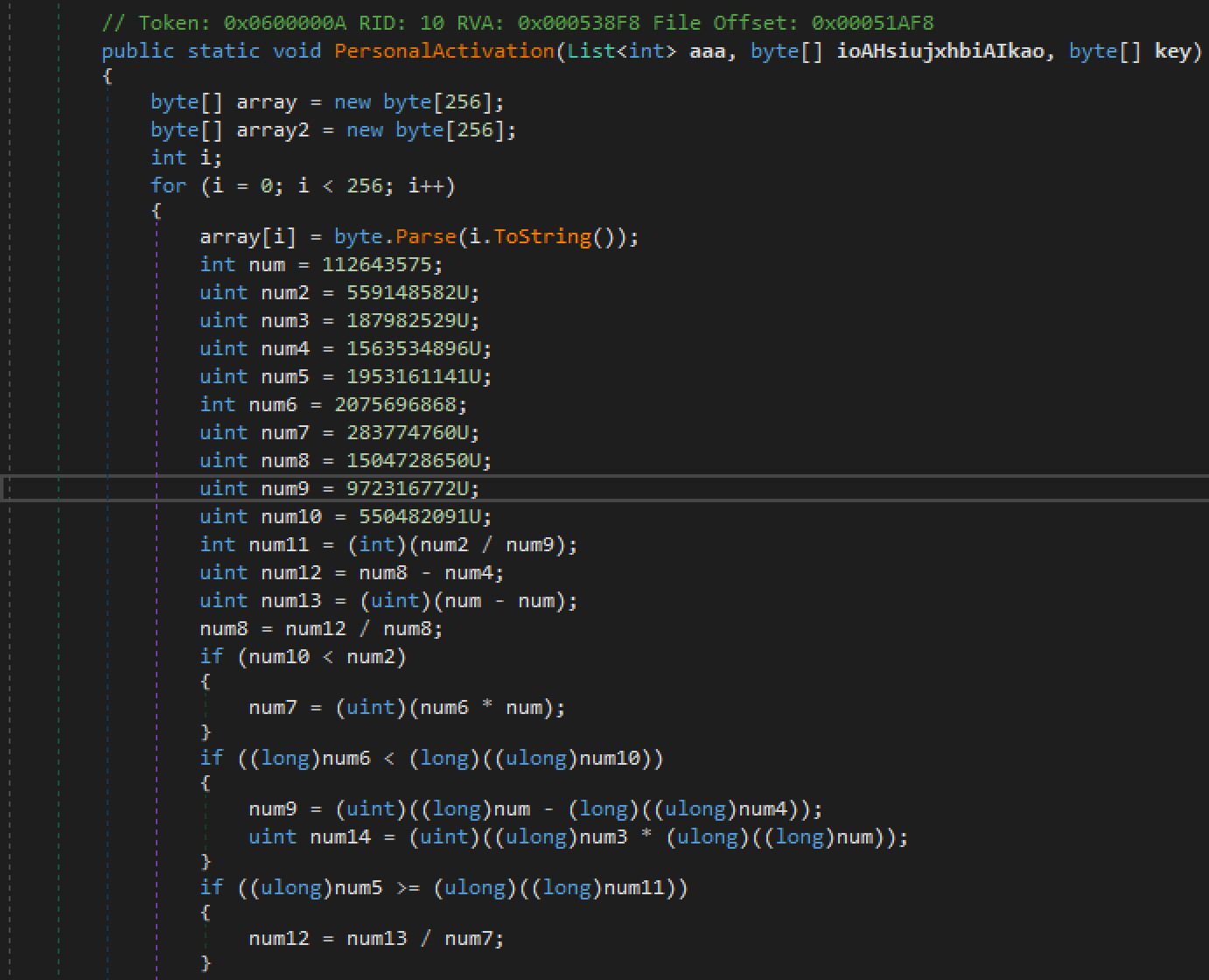
Examining the main method, it decrypts a buffer and then calls CallWindowProcW on it. The W at the end indicates the method takes a wide character string. From the Microsoft Docs the function “Passes message information to the specified window procedure.” Here it is used as a sneaky way to execute the shellcode which was allowed to be executed because of the previous call to VirtualProtect.
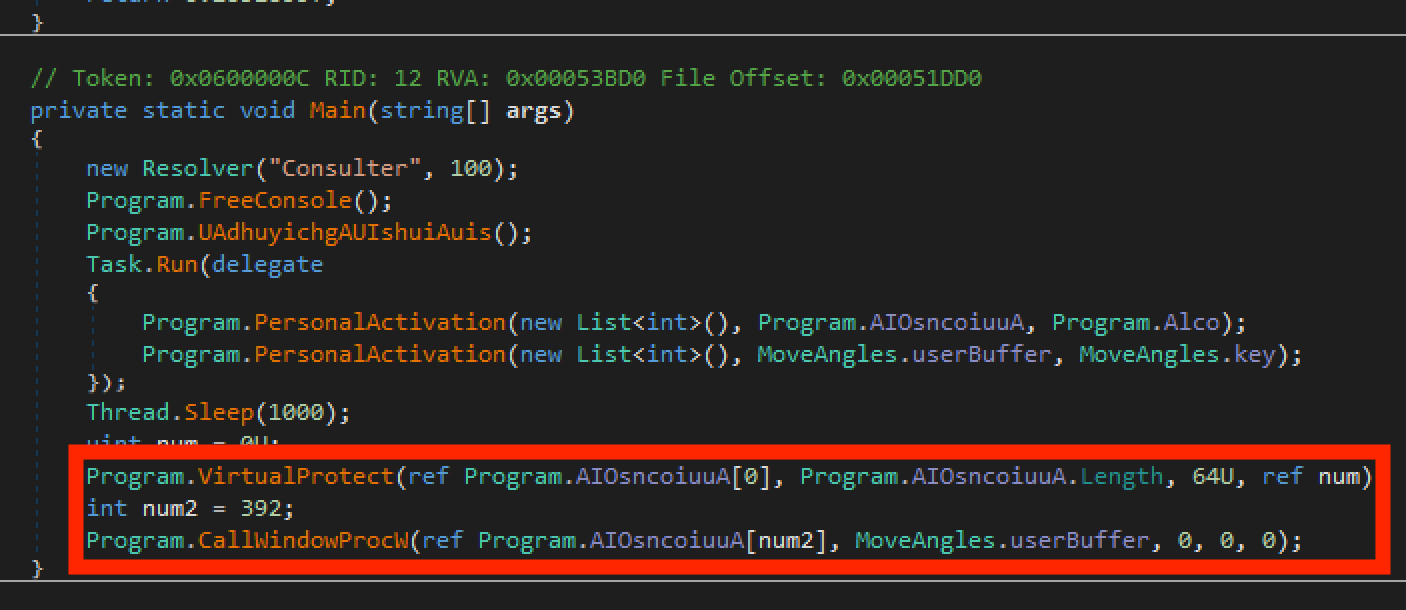
Malware authors hate this one weird trick
I then inserted a call to File.WriteAllBytes before the shellcode was executed, so I could do further analysis of the sample. DnSpy makes this pretty simple to do via their edit code functionality.

The second binary
Opening the second binary in Ghidra and Ida, it looked heavily obfuscated.
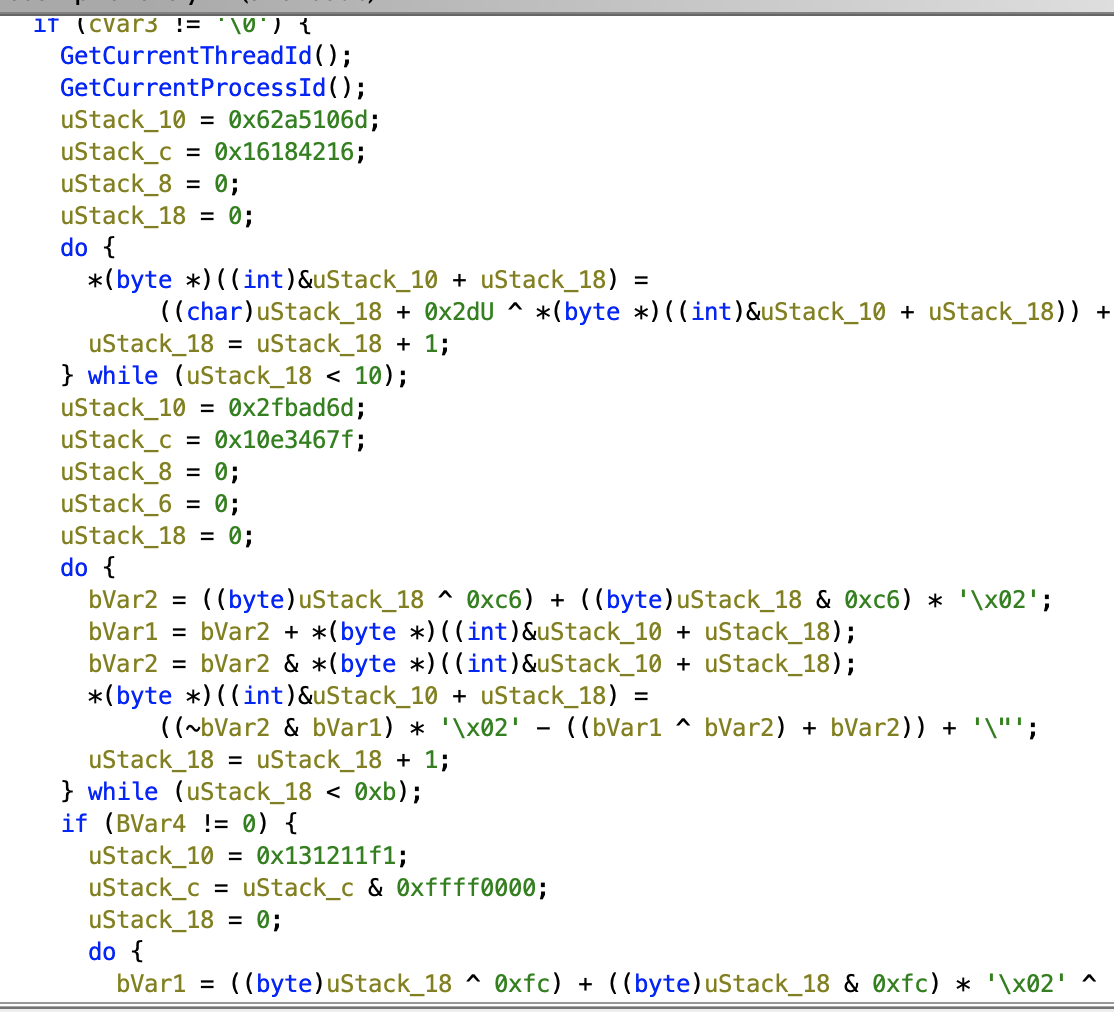
So I opted to use x64dbg to do dynamic analysis of the sample.
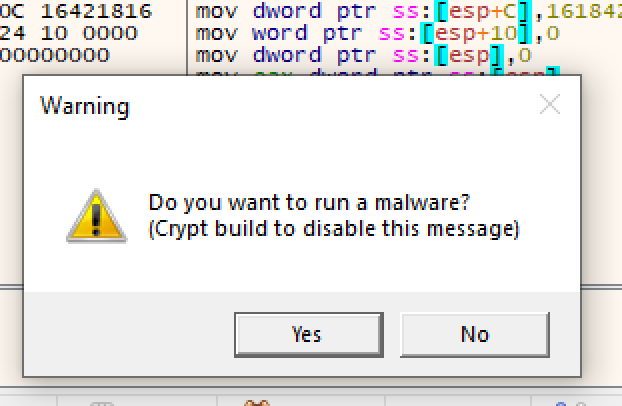
When running the sample, I got the following window. This clued me in to the fact that I was dealing with a Lumma sample. I then spent a couple of hours manually stepping over the assembly, setting breakpoints and labeling functions. I was able to see some of the Lumma sample’s info-stealing behaviour.
Info stealing
The malware queries system drives.

The malware queries hardware configuration.

The malware queries BIOS information.

The malware retrieves Edge user data.

C2 parameter
The malware makes a POST request to /api with the parameters act=life.
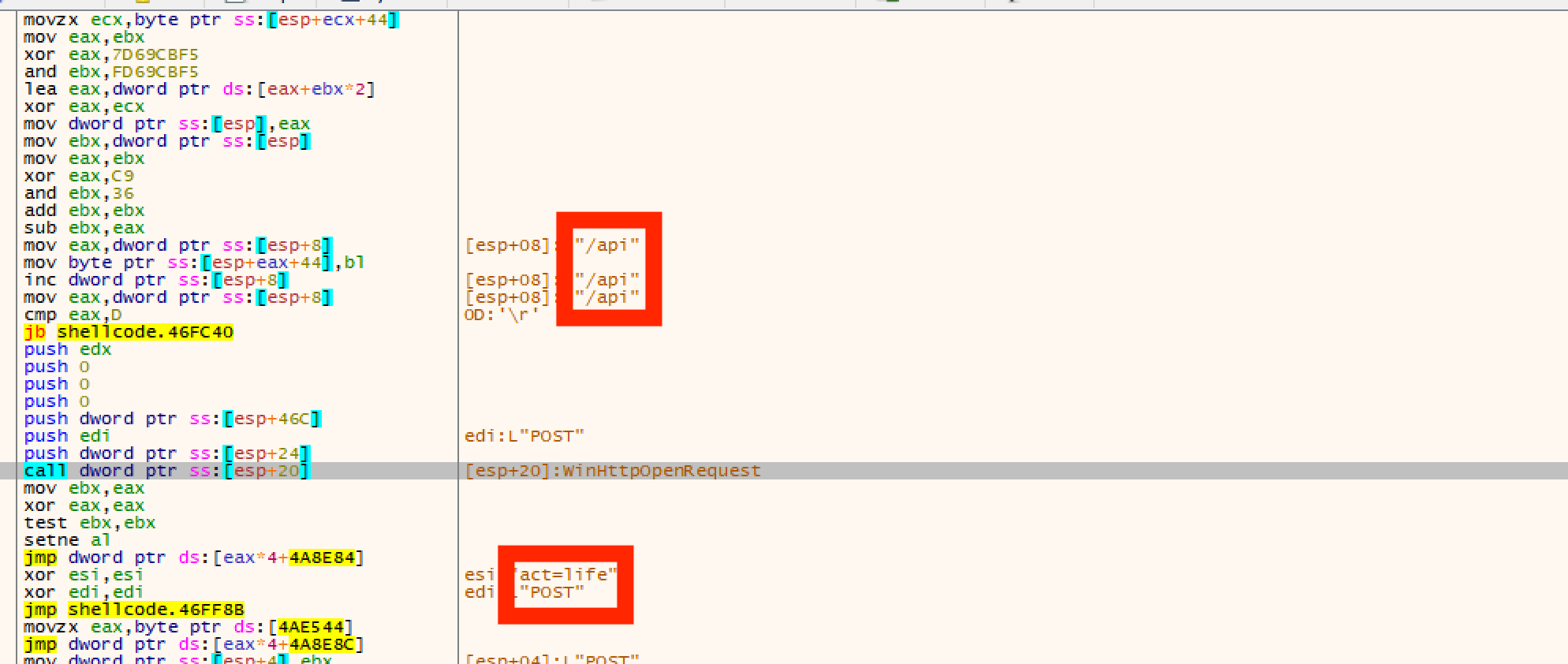
Disclaimer
I definitely missed a lot when doing my dynamic analysis, so this is only a subset of the Lumma functionality.
Big-Brained Dynamic Analysis
Thanks to Herrcore who gave me some tips, I was able to reverse more of the Command and Control (C2) communications of the sample. He showed me how to set a breakpoint on all winhttp.dll functions and then log the contents of the stack when it’s called.
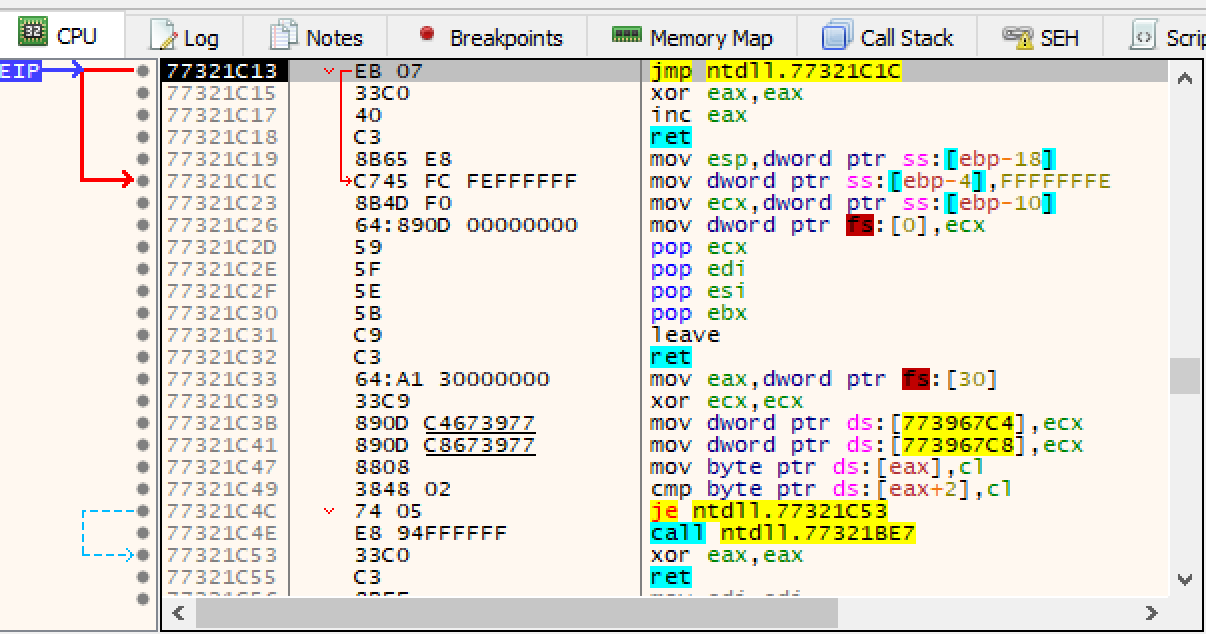
The first breakpoint the sample hits is in the loader, so I skip over it using the play button.
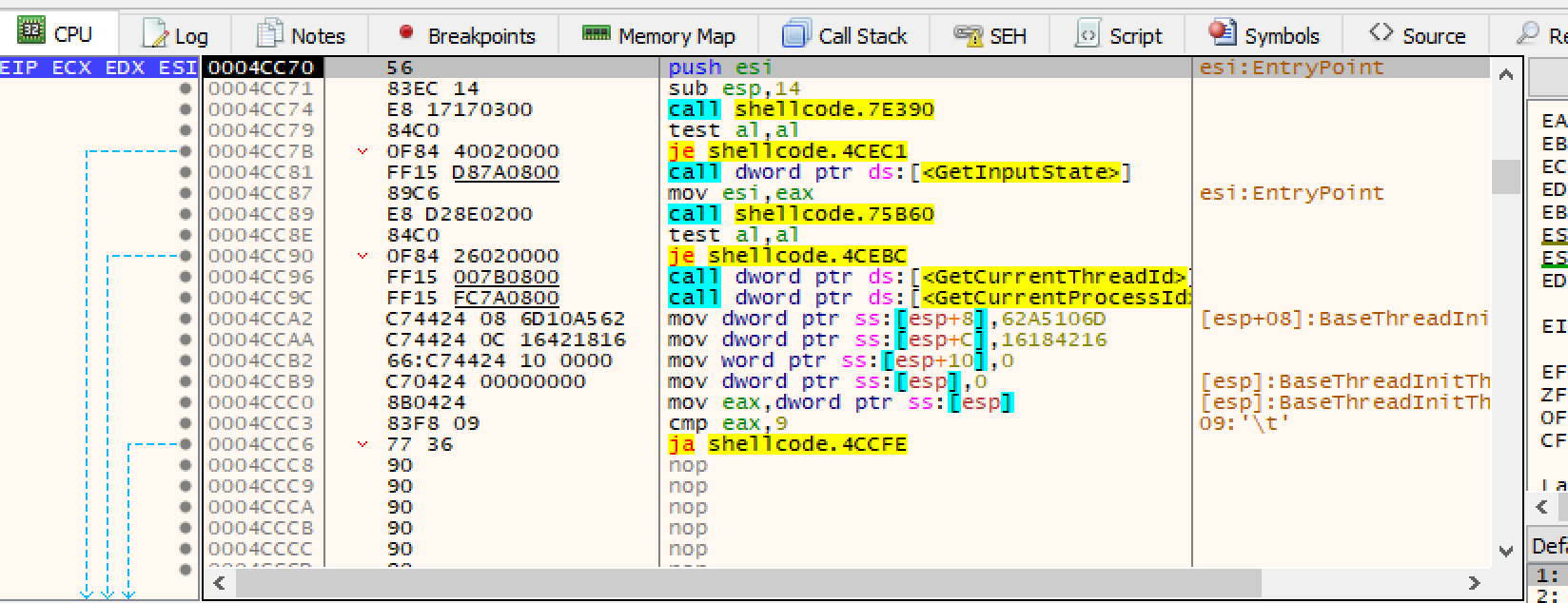
The second breakpoint actually breaks in the malware sample. This sample contains some anti-debugging features. So I set a breakpoint where it attempts to exit.
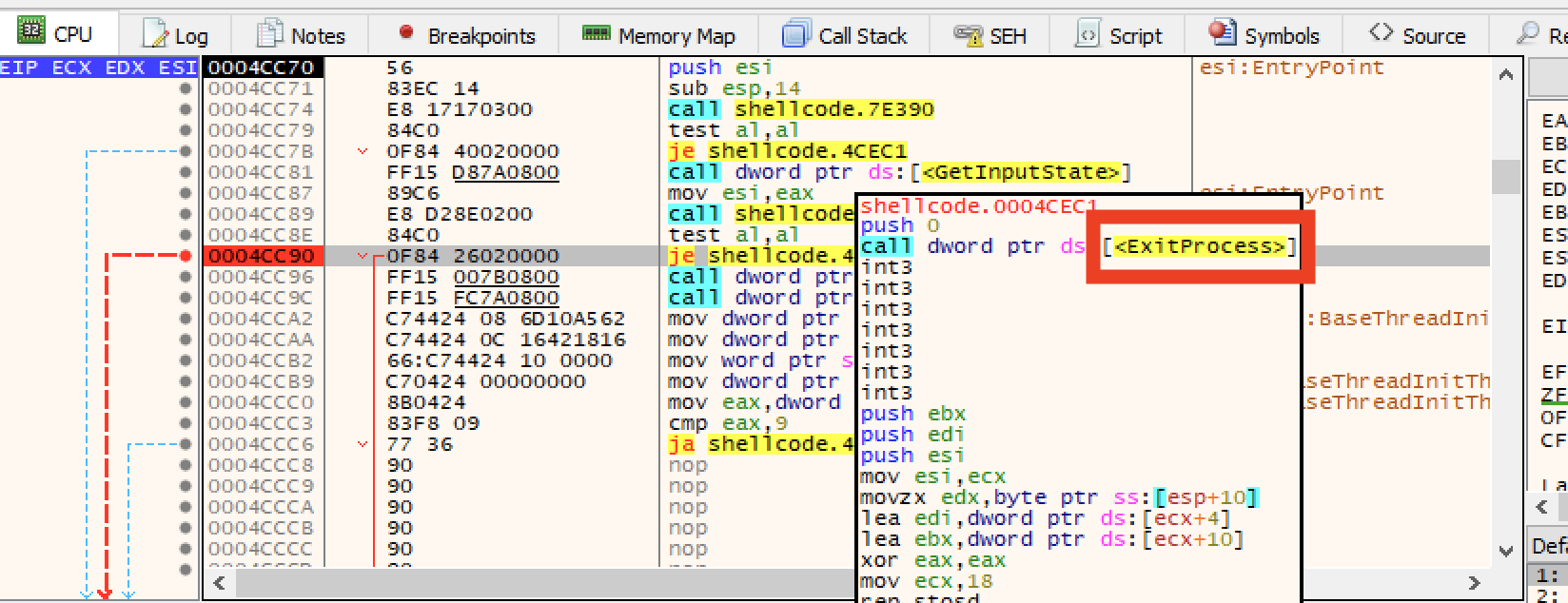
Let’s set the z flag (which controls jump conditions) to 0 so it doesn’t take the jump and exit.
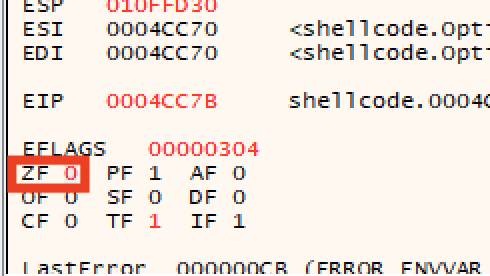
I then set x64dbg to break on user and system DLL loads by going to Options -> Preferences.
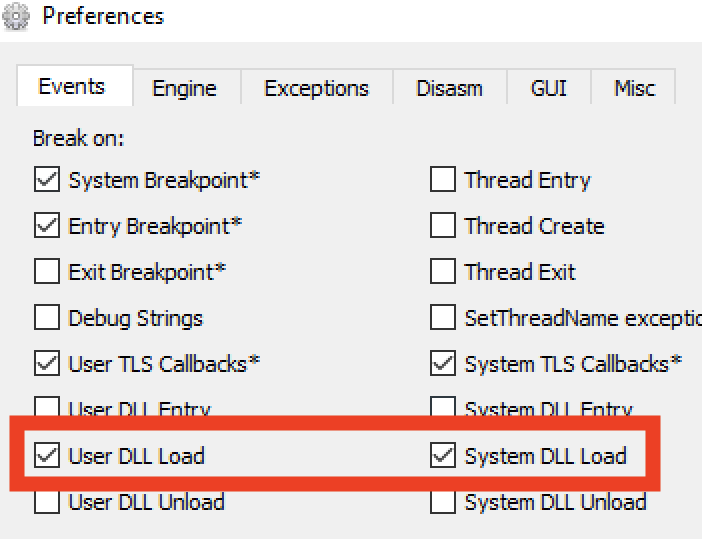
The next load breaks on winhttp.dll. Excellent. I can then set a breakpoint on all methods in that module.
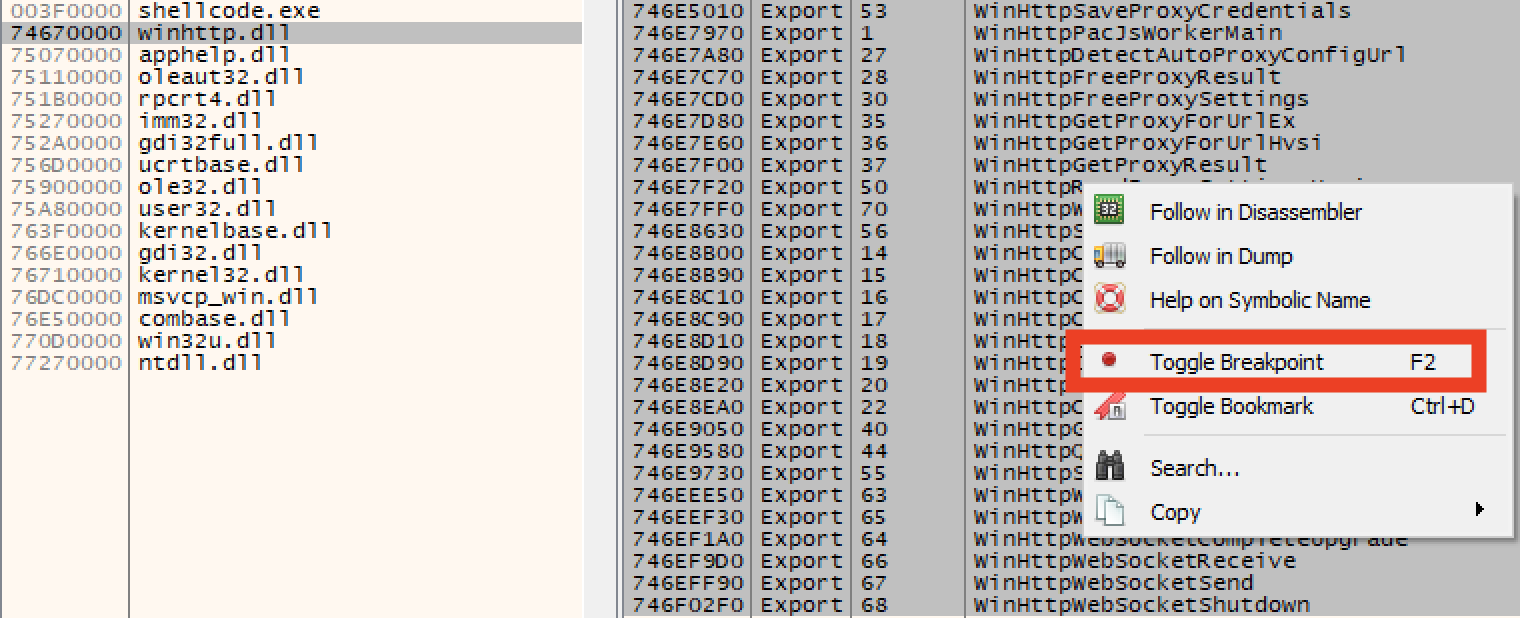
I can then disable breaking on DLL loads because I’ve set breakpoints on the target DLL.
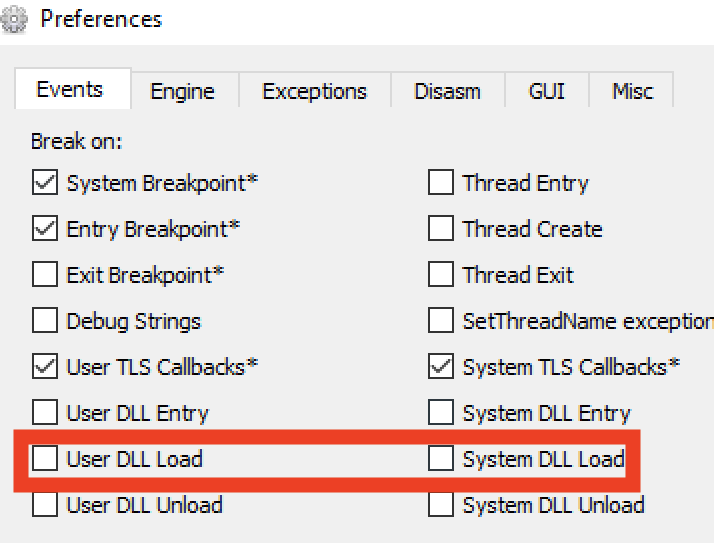
The next breakpoint is the entrypoint of winhttp.dll, so I know it’s working.

I can then set a logging breakpoint on WinHTTPCrackUrl.

Using the command Log "Url: {s:[ESP+4]} I log as a string the contents of the stack pointer plus 4, which is the location of the C2 URL.
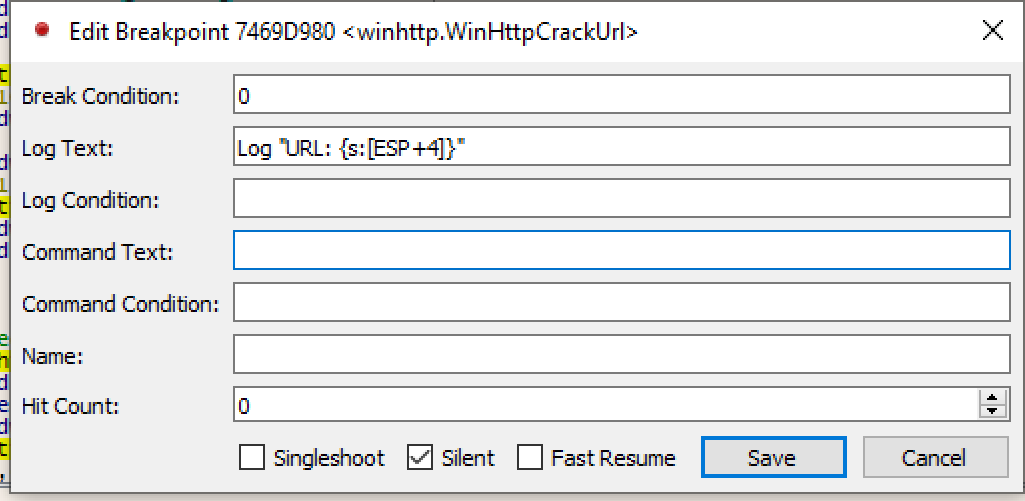
I get a list of C2s to use as indicators of compromise pretty painlessly.

Log "URL: L"hxxps[://]keennylrwmqlw[.]shop/""
Log "URL: L"hxxps[://]licenseodqwmqn[.]shop/""
Log "URL: L"hxxps[://]tendencctywop[.]shop/""
Log "URL: L"hxxps[://]tesecuuweqo[.]shop/""
Log "URL: L"hxxps[://]relaxatinownio[.]shop/""
Log "URL: L"hxxps[://]reggwardssdqw[.]shop/""
Log "URL: L"hxxps[://]eemmbryequo[.]shop/""
Log "URL: L"hxxps[://]tryyudjasudqo[.]shop/""
Log "URL: L"hxxps[://]steamcommunity[.]com/profiles/76561199724331900""
Log "URL: L"hxxps[://]steamcommunity[.]com/""